Thank you for taking the time to talk. Can you please introduce yourself to our readers.
Hi, my name is Kris Desautels.
When did you first become interested in photography? Which is your favorite camera to use, and how does the camera (and your other gear) influence your work?
I’ve been shooting off and on for most of my life with various little point and shoots, but started to really get into it about four years ago with a Fuji X100T. It’s a great compact camera with a 23mm prime lens. [Editor’s note – Kris is right! We reviewed the X100V just a few weeks ago. See that here.] After that I bought a Fuji XT-20, then purchased a Fuji XT-2 which is my current camera. The XT-2 is wonderful.
My lens lineup consists of a 16mm prime, a 56mm prime, 18-55mm zoom and a 55mm-230mm zoom. I primarily shoot with the 18-55mm because of it’s versatility. It gives me the flexibility to get a wide view while close to people as well as tighter views from across the street if something catches my eye. The 16mm and 56mm are great for shooting at night, and the 55mm-230mm is good for air and water shows that come to Chicago. As far as the Fuji XT-2 body, all major settings can be controlled using the turn dials on the top of the camera, so I never go into a menu when I’m out on the street. The design, build quality, and user friendliness really sets Fuji apart from other cameras I’ve used.
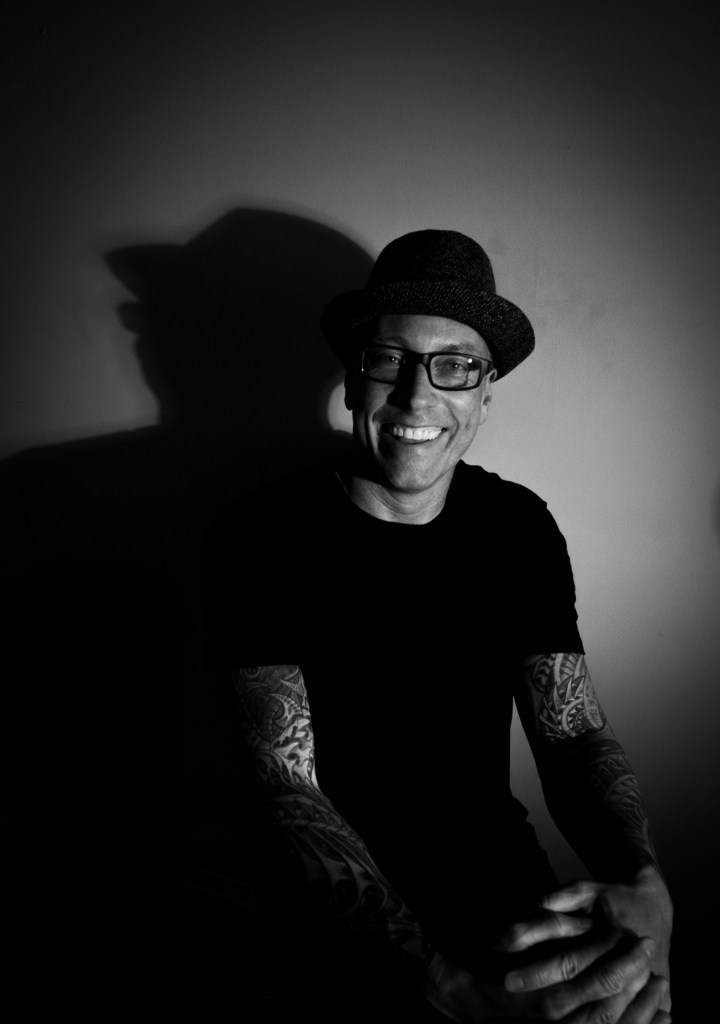
The photographer.
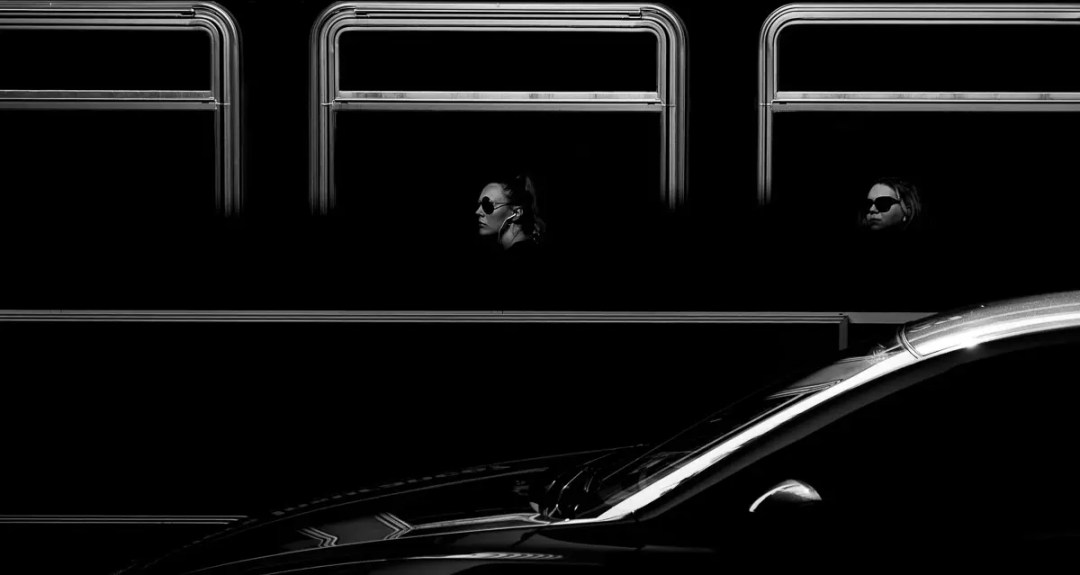
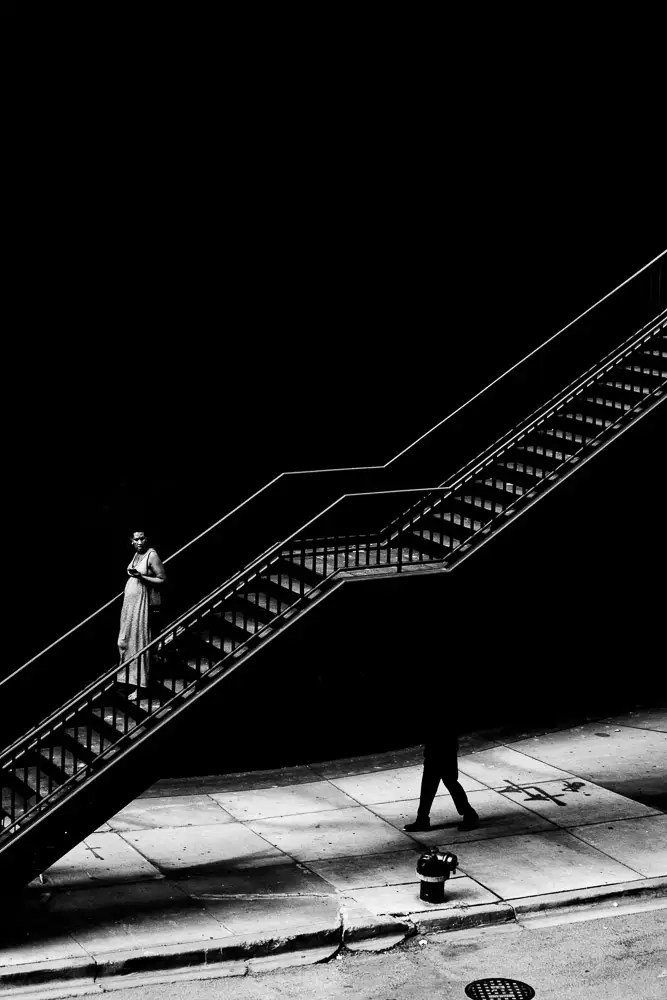
What are your favorite subjects to photograph?
It depends on what’s going on out in the street. I’ve been approaching the way I shoot in a couple of different ways. The first is to really take in as much architecture as possible, look for great light, and search for a lone figure wandering through my scene to get a sense of scale. On a good day I can see several different compositions at one location. Maybe try and tell a little story with three or four images.
I also love the hustle on the street during busy work days, and that’s when I’m looking for someone interesting, maybe what they’re wearing or a gesture that gives me a clue as to what they might be thinking or feeling. I was on my journey of getting a lot closer to people when shooting, then COVID came along and changed everything. Masks make it very hard to read someone, you have to see what they’re eyes are doing. It creates an anonymity that isolates people from one and other. When I go into the financial district in Chicago on a work day, the streets are nearly empty. What will happen to the downtown area? Will people ever come back to work in those offices? How will the pandemic affect large cities throughout the US?
We have a subject scarcity! But as long as the sun is shining, I’ll be out there shooting. Capturing that lone figure creates an isolated type feel, and it reminds me of what I love about the process of creation. It’s something that has resonated with me since I was a kid. Go get lost in my imagination and create another world. That’s my armor, and something I’ve always done on my own. So seeing someone isolated brings me joy, and comfort.
Do you shoot film or digital or both? Do you think there are meaningful differences between the two?
Shooting film as a kid had a level of excitement that surrounded getting the pictures back from the developer. Although I shoot digital, I still get that same excitement, but the gratification comes at a faster speed. I like going home and plugging in the camera to upload shots and get into the editing right away. I work a full time job, and want my weekends to be made of photographic efficiency. I do love the look of certain films, and mess around in Lightroom trying to recreate those looks. But in the end, actual film is just not practical enough for me.
What is unique about your work?
I think I find interesting subjects and have a unique way of seeing composition. All photographers see composition and subjects differently, it’s one of the beauties of it. Depending on what I’m thinking about, what I’ve been obsessing about, an idea, the interpretation or understanding of someone else’s idea, am I fearful, angry, depressed, lonely, joyful; all these things can add to my work if I allow myself to be vulnerable enough to experience them. The trick is trying to connect them to what I’m shooting. That’s the lifelong journey, trying to get to that Cartier Bresson mentality of connecting the head, heart, and vision. That’s what I want. It’s hard, but nothing worth doing is easy, so I try to remain open to new ideas and put one foot in front of the other.
How do you achieve your results?
I shoot with my ISO in auto, and make adjustments to the shutter speed and aperture. When the light is consistent, I’ll leave the shutter speed at about 1/500th, and adjust the aperture depending on what I want to focus on.
Where do you hope your photography goes from here?
Everywhere. I’m open, and will keep working on the craft and my understanding of this world we live and see where that takes me!
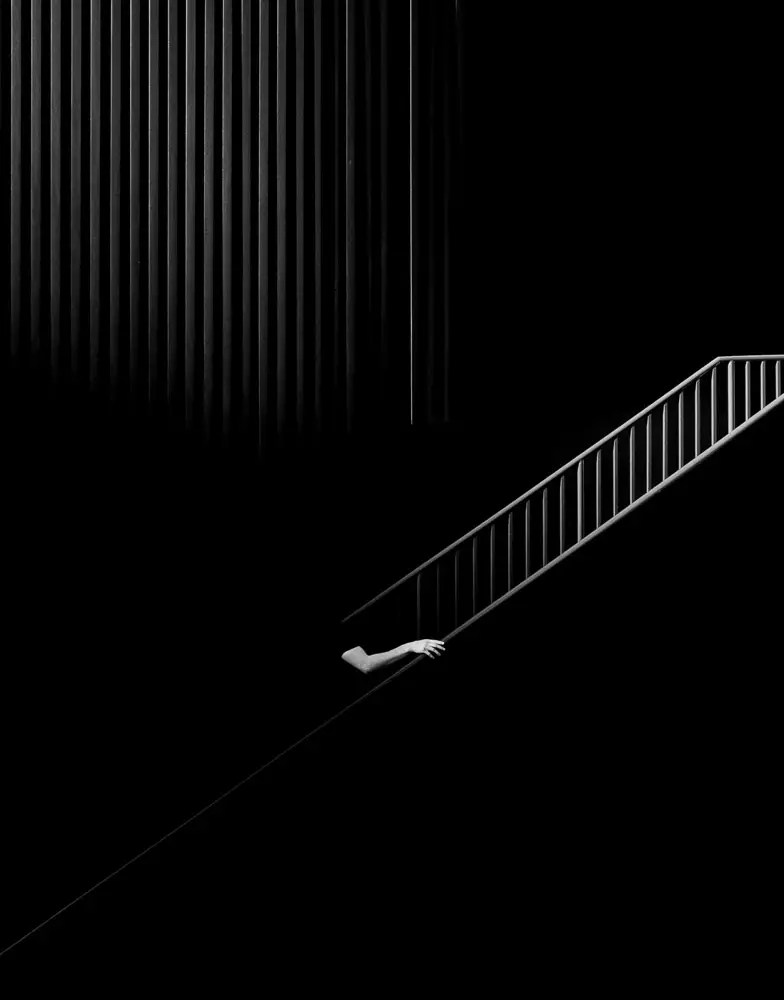
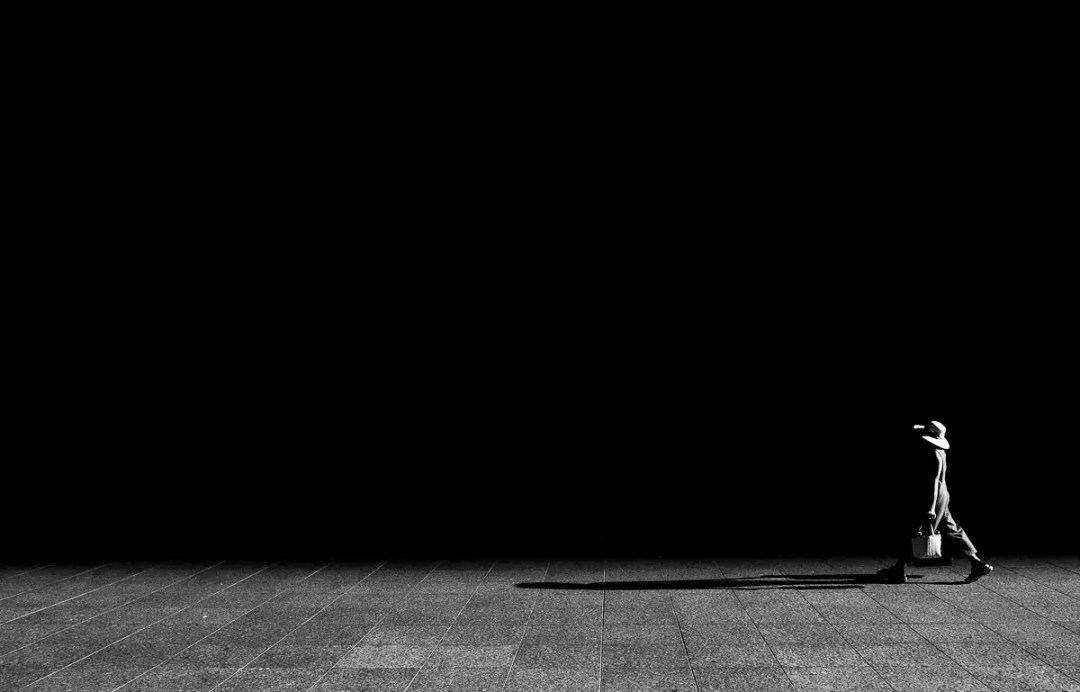
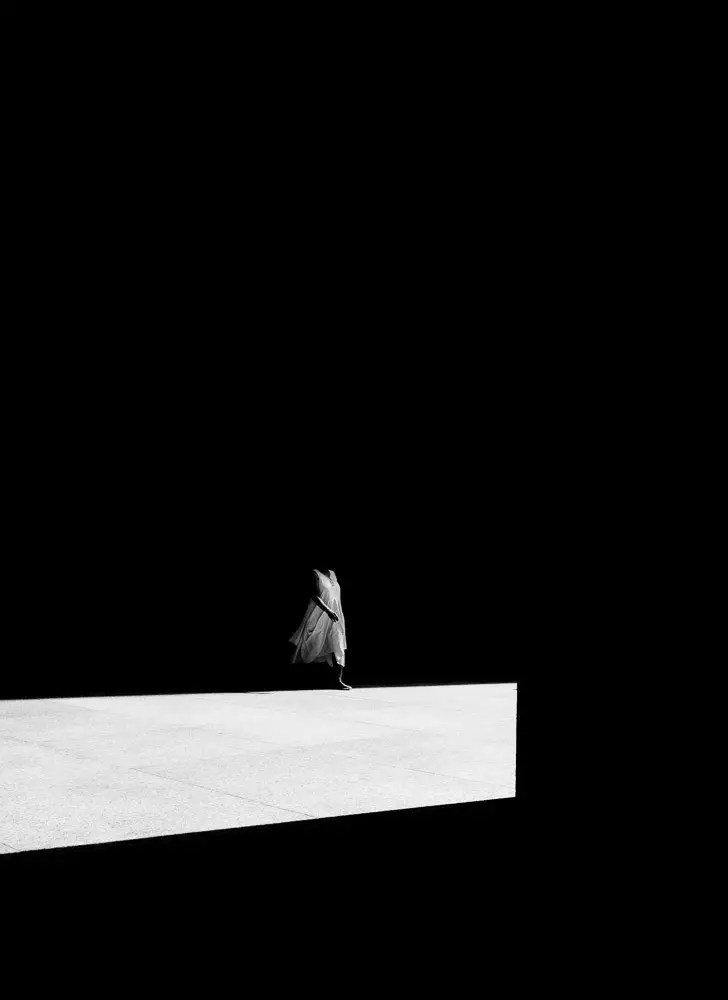
Do you have any advice for new photographers?
Go out and shoot. It doesn’t matter what camera you have. Forget the full frame vs cropped sensor debate. It’s bullshit. Some of the best music is written on cheaper instruments, and it’s good because it’s just that. It’s goooooood. You can’t fake it. It takes practice. Photographers shoot photos. Writers write. It’s simple really. You won’t learn what to do on the street by just thinking about it. You have to do it. I would listen to podcasts on photography during my commute (45 min) to and from work. I did this for a year. Exposure triangle, composition techniques, editing tips. The goal was to take the tools and apply them in real time on the street, without thinking about it, and rely on my instinct. It doesn’t always work, I still look at my camera in front of a scene and think, ‘what am I doing right now?’ It’s a marathon, not a sprint.
Read. A lot. I take time to read everyday. And don’t just read on your phone, it fucks with your head. Take time with a book, it slows your rhythm, helps with focus. The cell phone does the opposite, it irritates, isolates, and takes away your focus. And be careful with using too much social media, it can create a comparison game that you’ll never win.
Where can people see more of your images?
Visit me on Instagram – send me a DM, say hello. I have a series coming out soon in the form of a zine, titled Post Industrial Confusion: Conversations with my Shadow. It’s going through the final stages, so stay tuned. You can also find me curating @street.finder on Mondays.
See more of our Featured Photophile articles here
Follow Casual Photophile on Facebook and Instagram
[Some of the links in this article will direct users to our affiliates at B&H Photo, Amazon, and eBay. By purchasing anything using these links, Casual Photophile may receive a small commission at no additional charge to you. This helps Casual Photophile produce the content we produce. Many thanks for your support.]
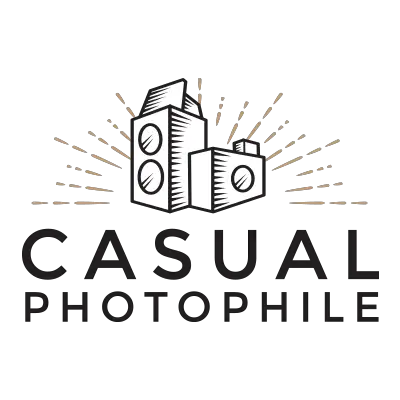
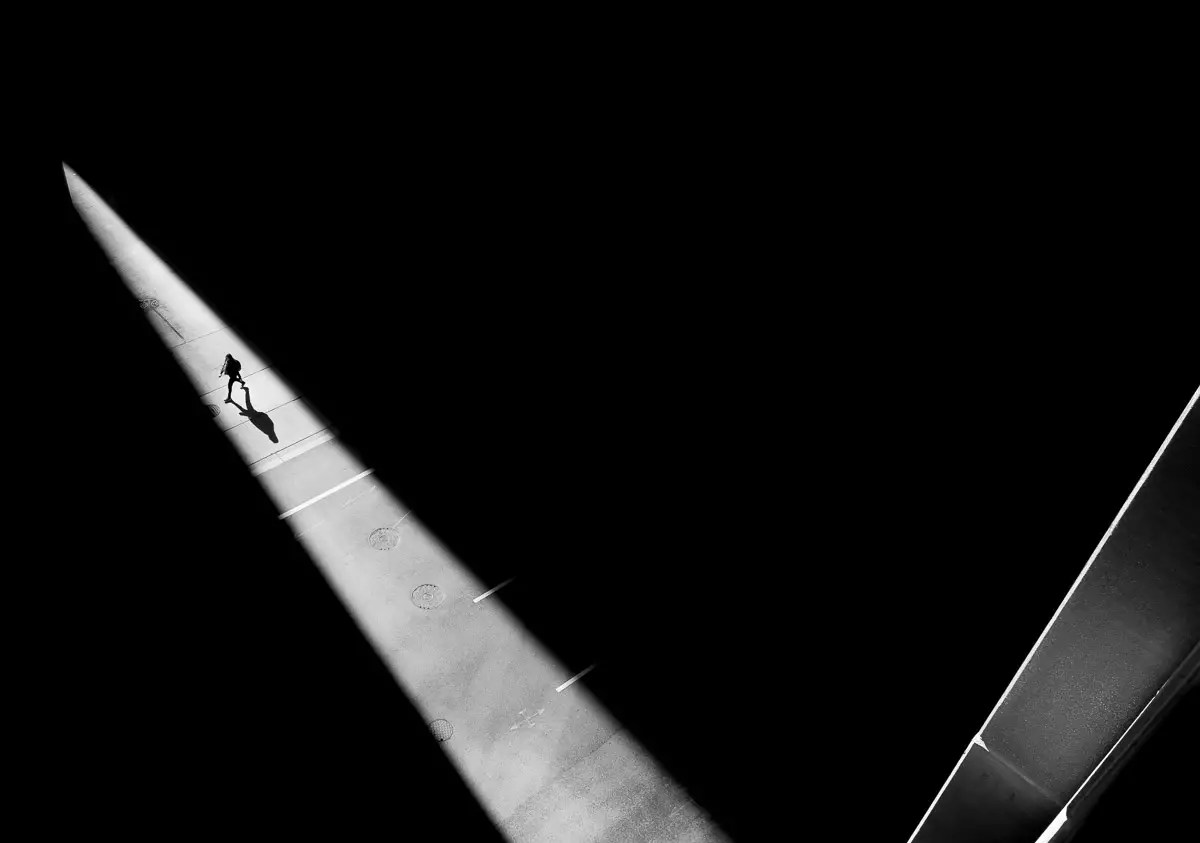
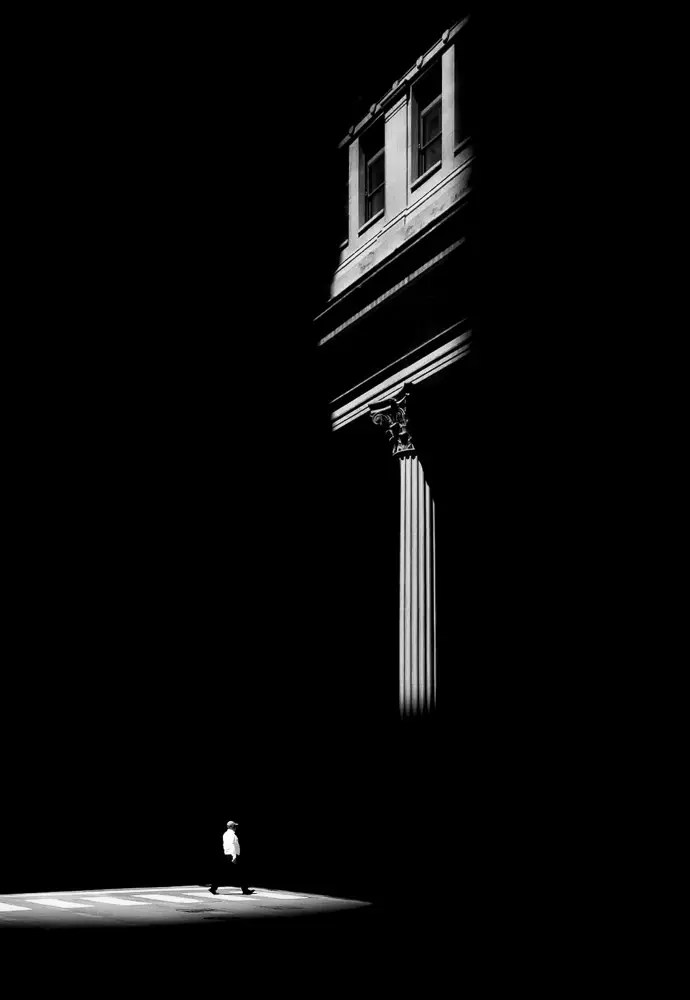
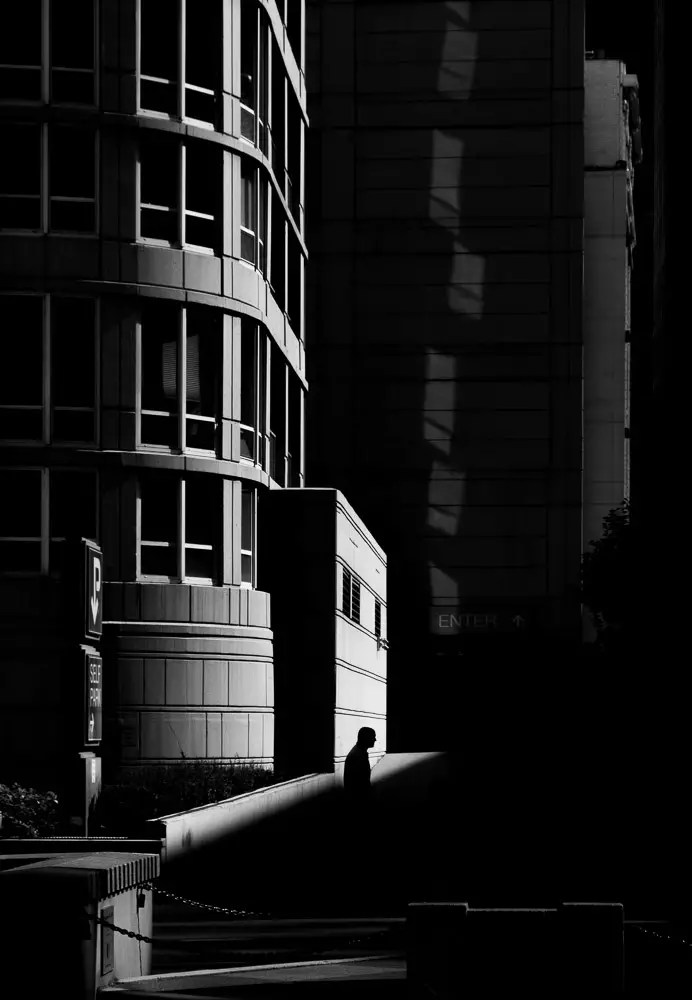
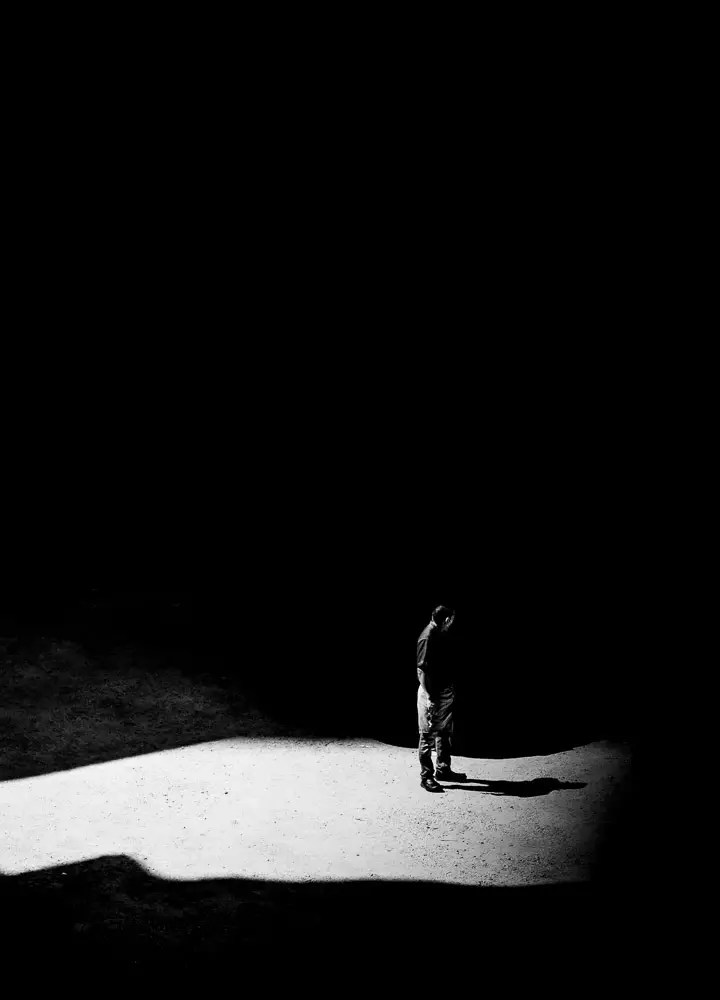
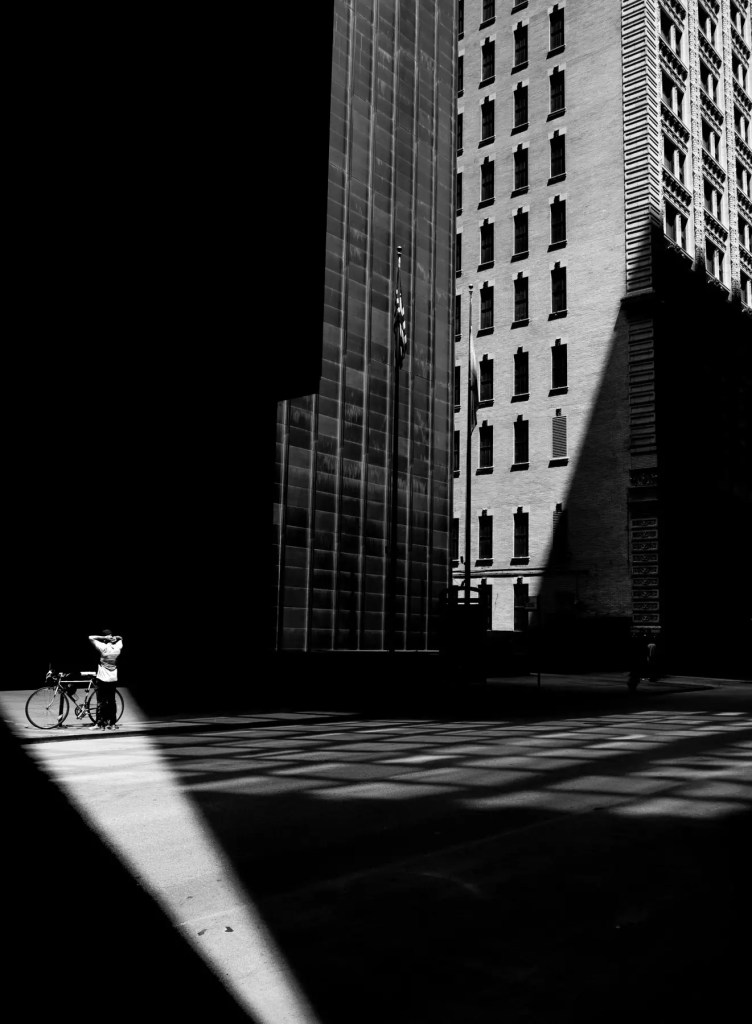
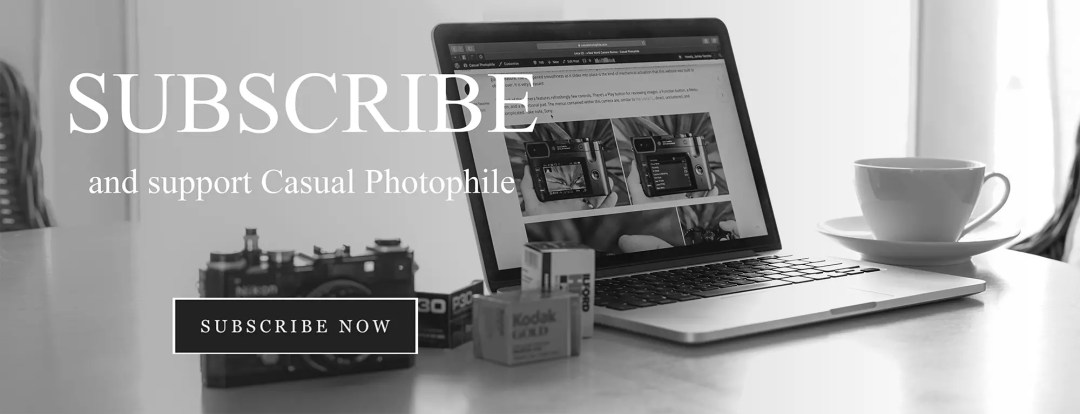
I love these pics! Definitely not straight out of the camera!
Gorgeous, somewhat spooky, mesmerizing.